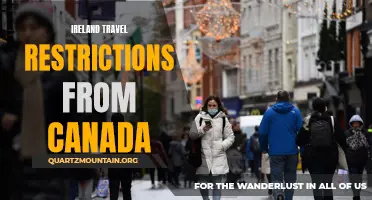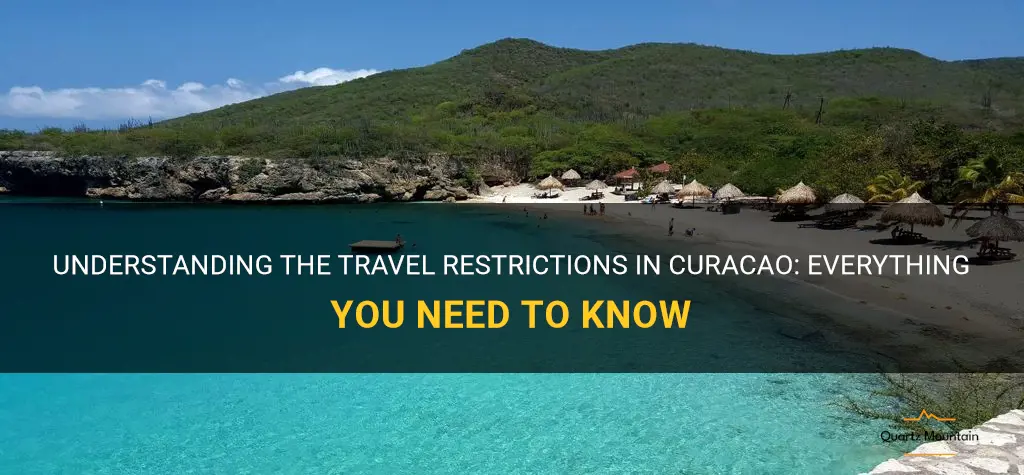
Curacao, the idyllic island paradise located off the coast of Venezuela, is renowned for its picturesque beaches, vibrant culture, and welcoming locals. However, in the wake of the global pandemic, this tropical haven has implemented strict travel restrictions to protect both its residents and visitors. These restrictions, while essential for public safety, have undoubtedly brought challenges and changes to the travel experience in Curacao. In this article, we will explore the current travel restrictions in place, their impact on tourism, and how Curacao has adapted to ensure that visitors can still enjoy all that this stunning destination has to offer.
What You'll Learn
- What are the current travel restrictions in Curacao?
- Are there any specific requirements or documents needed for entry into Curacao?
- Are there any mandatory quarantine or testing requirements for travelers to Curacao?
- Are there any restrictions on specific countries or regions for travel to Curacao?
- Are there any exceptions or exemptions to the travel restrictions in Curacao, such as for essential workers or residents?

What are the current travel restrictions in Curacao?
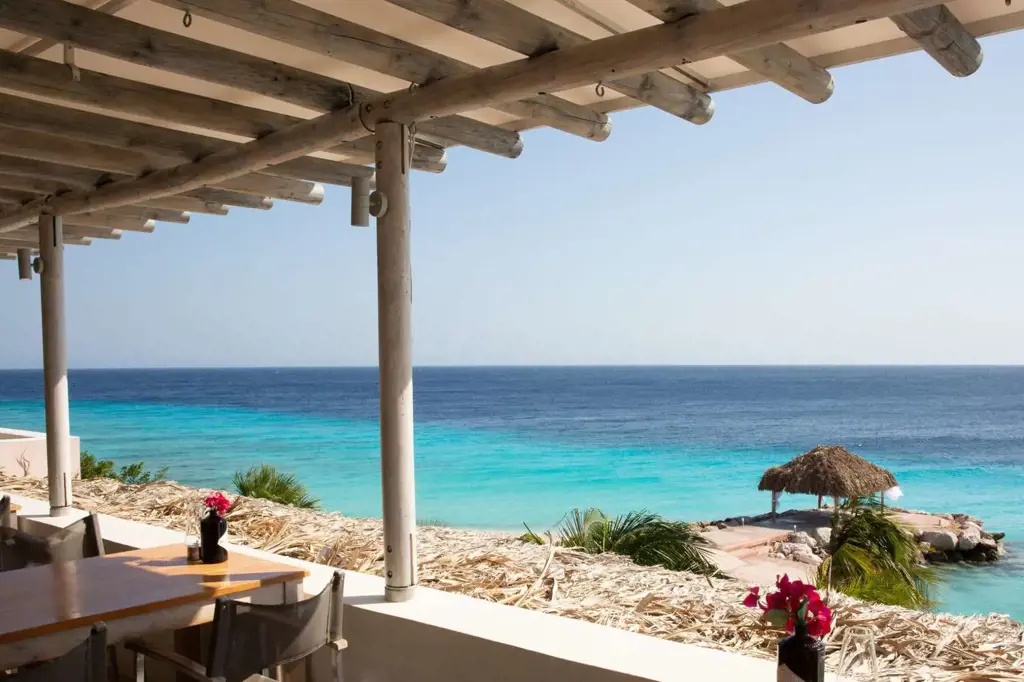
Curacao, a picturesque island in the southern Caribbean, is a popular tourist destination known for its stunning beaches, vibrant culture, and crystal-clear waters. However, with the ongoing COVID-19 pandemic, there have been several travel restrictions implemented to ensure the safety of both locals and visitors. If you are planning a trip to Curacao, it is important to stay informed about the current travel restrictions in place.
Entry Requirements:
Before traveling to Curacao, all visitors are required to fill out a digital immigration card and a Passenger Locator Card (PLC). These forms can be filled out online before departure. Additionally, travelers must have a printed and signed COVID-19 PCR test result taken within 72 hours prior to departure. The test must be performed at an accredited laboratory. Children under the age of 7 are not required to complete the PCR test.
Travelers are also required to have valid medical insurance coverage for their trip to Curacao. This insurance should cover any medical expenses related to COVID-19, including hospitalization, testing, and potential quarantine costs.
Upon Arrival:
Upon arrival in Curacao, all travelers are subject to a health assessment and temperature check. It is important to note that travelers coming from certain high-risk areas may be required to take an additional rapid antigen test at their own expense. These high-risk areas are determined based on the number of COVID-19 cases in each country.
Quarantine Requirements:
Currently, there is no mandatory quarantine period for travelers entering Curacao. However, if you test positive for COVID-19 upon arrival, you will be required to quarantine for a period of 14 days. The local health department will provide further instructions and support during this time.
While in Curacao:
It is important to adhere to all local COVID-19 regulations while in Curacao. This includes wearing face masks in public places, practicing good hand hygiene, and maintaining social distancing guidelines. There may also be additional restrictions in place, such as limited capacity at restaurants and attractions, so it is advisable to check with local authorities or establishments before planning any activities.
It is worth noting that these travel restrictions are subject to change based on the evolving situation with COVID-19. Therefore, it is essential to stay updated on the latest information before and during your trip to Curacao. The official website of the Government of Curacao and the local tourism board are reliable sources of information for travelers.
In conclusion, if you are planning a trip to Curacao, it is important to be aware of the current travel restrictions in place. This includes filling out necessary forms before departure, having a negative COVID-19 PCR test result, and valid medical insurance. Upon arrival, all travelers will undergo a health assessment and temperature check. While in Curacao, it is important to follow local COVID-19 regulations and guidelines. By staying informed and taking necessary precautions, you can have a safe and enjoyable trip to Curacao.
Understanding the Current Travel Restrictions Between the US and Germany
You may want to see also

Are there any specific requirements or documents needed for entry into Curacao?
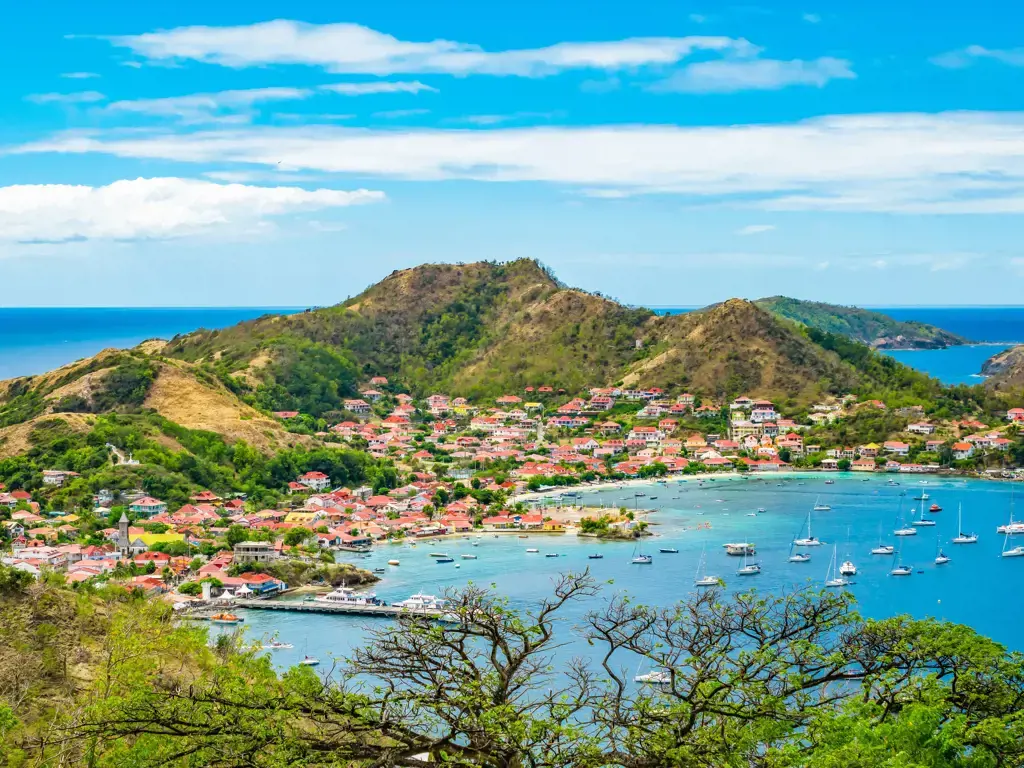
If you are planning a trip to Curacao, there are certain requirements and documents that you will need to fulfill in order to enter the country. Curacao is a beautiful Caribbean island that is part of the Kingdom of the Netherlands. It is known for its stunning beaches, vibrant culture, and diverse marine life. Whether you are visiting for a vacation, business, or any other purpose, it is important to familiarize yourself with the entry requirements to ensure a smooth and hassle-free trip.
Below are the specific requirements and documents that you will need for entry into Curacao:
- Valid Passport: The most important document you will need is a valid passport. Your passport should be valid for at least six months beyond your planned departure date from Curacao. It is always a good idea to check the expiration date on your passport and renew it if necessary before your trip.
- Visa Requirements: Depending on your nationality and the duration of your stay, you may or may not need a visa to enter Curacao. Citizens of some countries do not require a visa for stays up to 90 days, while others may require a visa for any length of stay. It is essential to check the visa requirements for your specific country before traveling to Curacao. You can visit the official website of the Government of Curacao or contact the nearest embassy or consulate for accurate and up-to-date information.
- Return Ticket: When entering Curacao, you may be required to provide proof of onward or return travel. This means that you must have a round-trip ticket or a ticket to your next destination.
- Proof of Accommodation: You may also be asked to provide proof of accommodation for your stay in Curacao. This could be in the form of a hotel reservation confirmation or a letter from a friend or relative if you are staying with them. It is advisable to ensure that your accommodation arrangements are confirmed and have the necessary documentation before traveling.
- Travel Insurance: While not mandatory, it is highly recommended to have travel insurance that covers medical expenses, trip cancellation, and other unforeseen circumstances. This will provide you with peace of mind during your trip to Curacao.
- COVID-19 Requirements: Due to the ongoing COVID-19 pandemic, there may be additional requirements for entry into Curacao. These requirements can change frequently, so it is important to stay updated and check the official government websites for the latest information. Currently, travelers are required to complete a digital immigration card and provide a negative PCR test result taken within 72 hours before traveling. They may also be required to undergo additional testing upon arrival and adhere to local health protocols during their stay.
It is worth mentioning that the requirements may vary depending on the purpose of your visit, such as tourism, business, or study. It is always recommended to consult the official government websites or contact the embassy or consulate of Curacao in your country for the most accurate and up-to-date information.
In conclusion, if you are planning a trip to Curacao, make sure to have a valid passport, check visa requirements, provide proof of onward travel and accommodation, consider travel insurance, and stay updated with any COVID-19 related requirements. By fulfilling these specific requirements and having the necessary documents, you will have a smooth entry and enjoyable stay on this beautiful Caribbean island.
Exploring the Restrictions on Travel to Venice
You may want to see also

Are there any mandatory quarantine or testing requirements for travelers to Curacao?
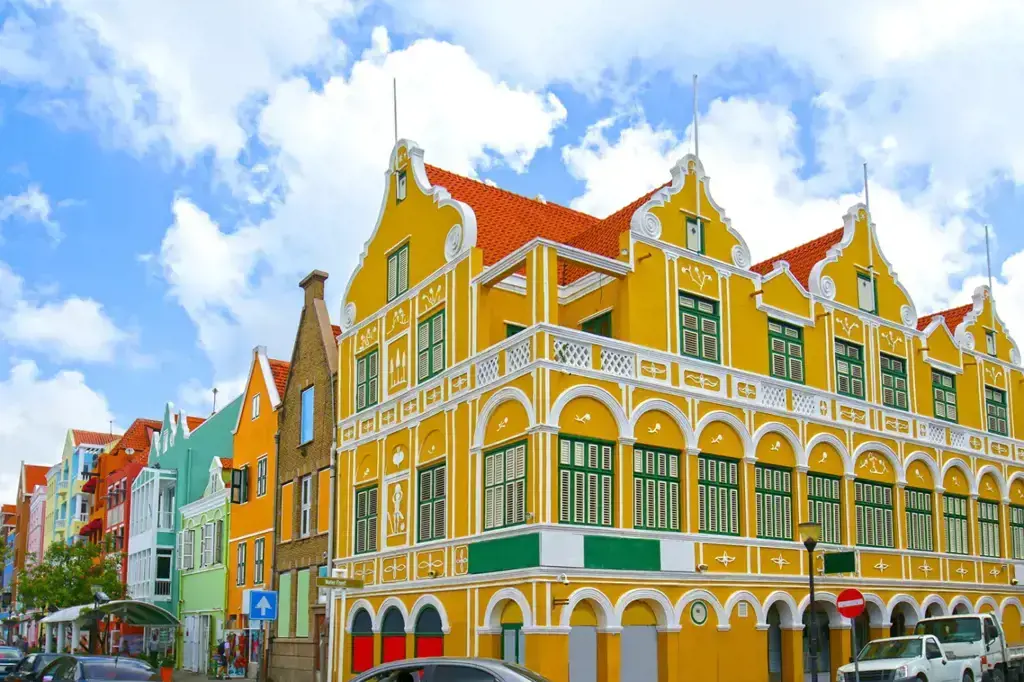
Curacao is a stunning island located in the Caribbean, known for its pristine beaches, colorful underwater world, and vibrant culture. If you are planning a trip to Curacao, it is essential to be aware of any mandatory quarantine or testing requirements for travelers. In this article, we will explore the current guidelines in place to ensure a safe and enjoyable visit to the island.
As of my knowledge, due to the ongoing COVID-19 pandemic, Curacao has implemented several measures to protect its residents and visitors. These measures include mandatory quarantine and testing requirements for travelers arriving on the island. Here are the details you need to know:
Pre-travel PCR test:
Before your journey to Curacao, you must undergo a polymerase chain reaction (PCR) test to detect the presence of COVID-19. The test should be taken within 72 hours prior to your departure. It is crucial to ensure the test is conducted at an accredited laboratory. Without a negative test result, you may be denied entry into Curacao.
Digital Immigration Card and Passenger Locator Card:
All travelers are required to complete a digital Immigration Card and a Passenger Locator Card online before their arrival. These forms gather essential information about your travel history, contact details, and health status.
Mandatory quarantine:
Upon arrival in Curacao, all travelers, including residents, must undergo a mandatory 14-day quarantine. However, there are certain exceptions to this rule. If you have stayed in a low-risk country according to the risk assessment by Curacao's Department of Public Health, you may be exempt from quarantine. It is crucial to check the updated list of low-risk countries before planning your trip.
Additional testing during the quarantine period:
During your 14-day quarantine, you may be subjected to testing for COVID-19. The specific testing requirements can vary, so it is essential to follow the guidelines provided by public health officials in Curacao.
Monitoring symptoms:
Throughout your stay in Curacao, it is vital to monitor your health and report any COVID-19 related symptoms to the local health authorities. This will ensure timely intervention and appropriate measures can be implemented to prevent the spread of the virus.
It is important to note that these guidelines are subject to change based on the evolving situation of the pandemic. Therefore, it is crucial to stay updated with the latest information from reliable sources such as official government websites, the World Health Organization (WHO), and the Centers for Disease Control and Prevention (CDC).
In conclusion, if you are planning a trip to Curacao, it is essential to be aware of the mandatory quarantine and testing requirements for travelers. Pre-travel PCR testing, digital Immigration and Passenger Locator Cards, and a 14-day quarantine are currently in place. However, exceptions may apply if you are arriving from a low-risk country. Stay informed, follow the guidelines, and have a safe and enjoyable trip to Curacao!
Exploring the Easing of LAX Airport Travel Restrictions Amidst the Pandemic
You may want to see also

Are there any restrictions on specific countries or regions for travel to Curacao?
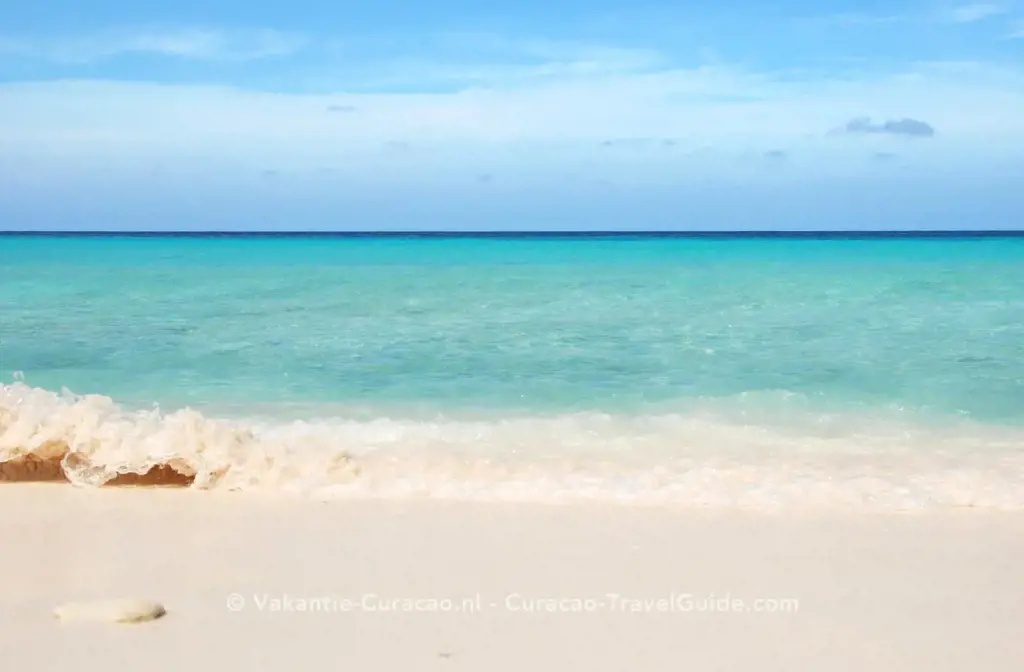
With the ongoing global pandemic, many countries have implemented travel restrictions to protect their residents and prevent the spread of COVID-19. Curacao, a Caribbean island known for its beautiful beaches and rich culture, is no exception. If you are considering traveling to Curacao, it is important to be aware of any specific restrictions that may be in place for certain countries or regions.
As of now, Curacao has categorized countries and regions into four different risk levels: low, moderate, high, and very high. The categorization is based on the number of COVID-19 cases per 100,000 people in the past 14 days. Travelers from countries or regions categorized as low risk face the fewest restrictions, while those from very high-risk areas face the strictest measures.
For travelers coming from low-risk countries or regions, no additional testing or quarantine requirements are necessary. However, all travelers are still required to complete the digital immigration card and show proof of a negative PCR test taken within 72 hours before departure.
If you are traveling from a country or region classified as moderate risk, you will be required to take a PCR test within 72 hours before departure and have a printed negative test result. Additionally, travelers from moderate-risk areas are subject to enhanced monitoring by public health authorities during their stay in Curacao. This may include daily temperature checks and regular follow-up calls.
Travelers from high-risk countries or regions will need to undergo a PCR test within 72 hours before departure and have a printed negative test result. They are also required to fill out the digital immigration card, complete a 14-day quarantine upon arrival, and take a second PCR test on the fifth day of their quarantine.
For travelers coming from very high-risk areas, the restrictions are even more stringent. They must provide a negative PCR test result taken within 72 hours before departure, complete the digital immigration card, and undergo a mandatory 14-day quarantine upon arrival. Additionally, a third PCR test is required on the fifth day of the quarantine.
It is important to note that these restrictions are subject to change, and it is advisable to regularly check the official website of the Government of Curacao for the most up-to-date information. The government closely monitors the situation and may adjust the risk categorization of countries and regions accordingly.
In conclusion, if you are planning to travel to Curacao, it is crucial to be aware of the specific restrictions for your country or region. By staying informed and following the guidelines set by the government, you can help ensure the safety and well-being of yourself and others during your visit to this stunning Caribbean destination.
Understanding Korean Airlines Travel Restrictions: What You Need to Know
You may want to see also

Are there any exceptions or exemptions to the travel restrictions in Curacao, such as for essential workers or residents?
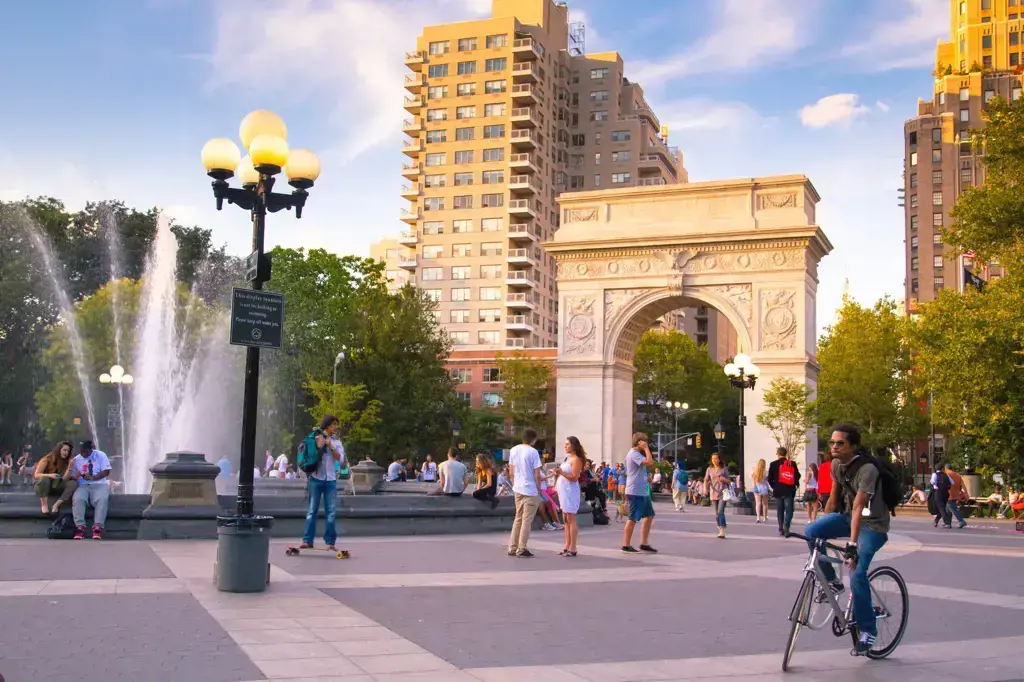
In an effort to control the spread of COVID-19, many countries around the world have implemented travel restrictions and policies to limit non-essential travel. Curaçao, a Caribbean island, has also taken measures to protect its population from the virus. However, there are certain exceptions and exemptions to the travel restrictions in Curaçao, such as for essential workers and residents.
Essential workers, such as healthcare professionals, emergency personnel, and individuals involved in critical infrastructure, are exempt from the travel restrictions in Curaçao. These individuals are required to provide proper documentation and proof of their essential status when traveling to the island. This includes a letter from their employer stating their essential role and the need for travel.
Residents of Curaçao are also exempt from the travel restrictions. However, they must follow certain protocols and guidelines upon arrival. These may include undergoing a health screening, providing proof of residency, and adhering to any quarantine or self-isolation requirements.
In addition to essential workers and residents, there may be other specific exceptions or exemptions to the travel restrictions in Curaçao. These may include diplomats, individuals traveling for medical purposes, and individuals with humanitarian reasons for travel. However, it is important to note that each case is evaluated on an individual basis, and proper documentation and proof may be required.
To ensure compliance with the travel restrictions and exemptions, Curaçao has implemented strict entry requirements and protocols. Travelers are required to complete an online pre-travel authorization process, providing details about their travel plans, health status, and any exemptions they may fall under. They must also provide a negative COVID-19 test result taken within a certain timeframe before travel.
It is important to stay up to date with the latest information and guidelines regarding travel restrictions in Curaçao. The situation is rapidly evolving, and the government may make changes to the restrictions and exemptions based on the local and global COVID-19 situation. Travelers should consult official sources, such as the government's website or embassy, for the most accurate and current information.
In summary, while Curaçao has implemented travel restrictions to control the spread of COVID-19, there are exceptions and exemptions for essential workers, residents, and specific circumstances. These individuals must provide proper documentation and adhere to the entry requirements and protocols set by the government. It is important for travelers to stay informed and follow the latest guidelines to ensure a safe and smooth journey.
When Will the U.S. Lift Travel Restrictions? Updates on the Easing of International Travel Measures
You may want to see also
Frequently asked questions
Yes, there are currently travel restrictions in place for visiting Curaçao. All travelers must complete an online immigration card and a pre-travel health declaration within 48 hours prior to departure. Additionally, travelers must provide proof of a negative COVID-19 PCR test taken within 72 hours prior to departure.
Curaçao is currently allowing travelers from low-risk countries to visit. The list of low-risk countries is regularly updated by the Curaçao government. Travelers from high-risk countries are not allowed entry, unless they have a compelling reason for travel and have been granted permission by the Curaçao government.
If you are traveling from a low-risk country and have a negative COVID-19 PCR test result, you do not need to quarantine upon arrival in Curaçao. However, if you are traveling from a high-risk country and have been granted permission to enter, you may be required to quarantine for a period of 14 days upon arrival.
Curaçao has implemented several health and safety measures to prevent the spread of COVID-19. These measures include mandatory mask-wearing in public spaces, social distancing protocols, and increased hygiene practices. Visitors are encouraged to follow these measures and adhere to any additional guidelines provided by local authorities.
It is important to regularly check the official website of the Curaçao Tourist Board or the Ministry of Public Health for the most up-to-date information on travel restrictions. These sources will provide the latest information on entry requirements, quarantine measures, and any changes to the travel restrictions in Curaçao.



